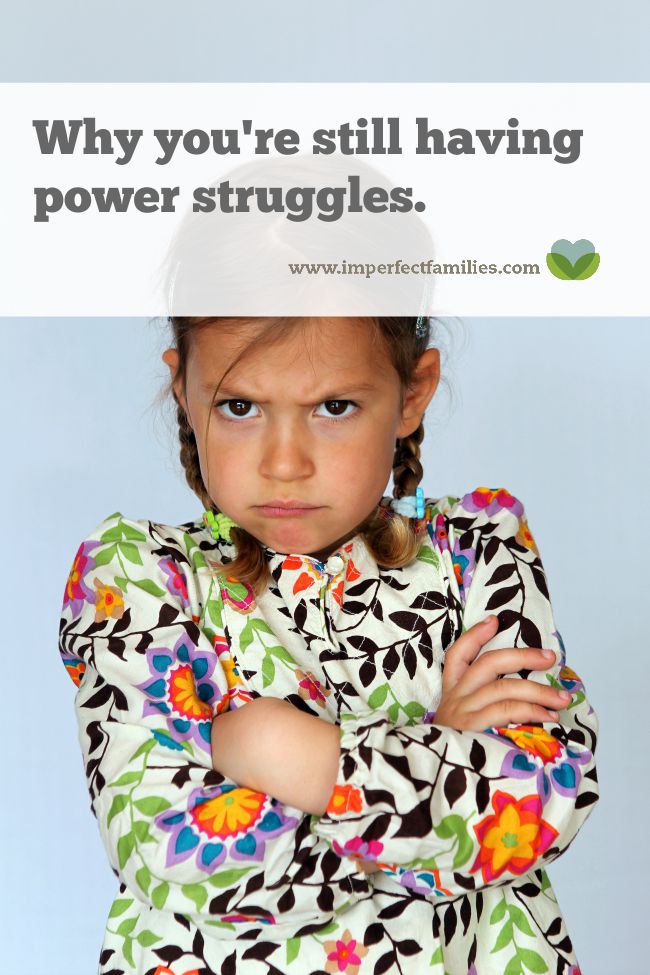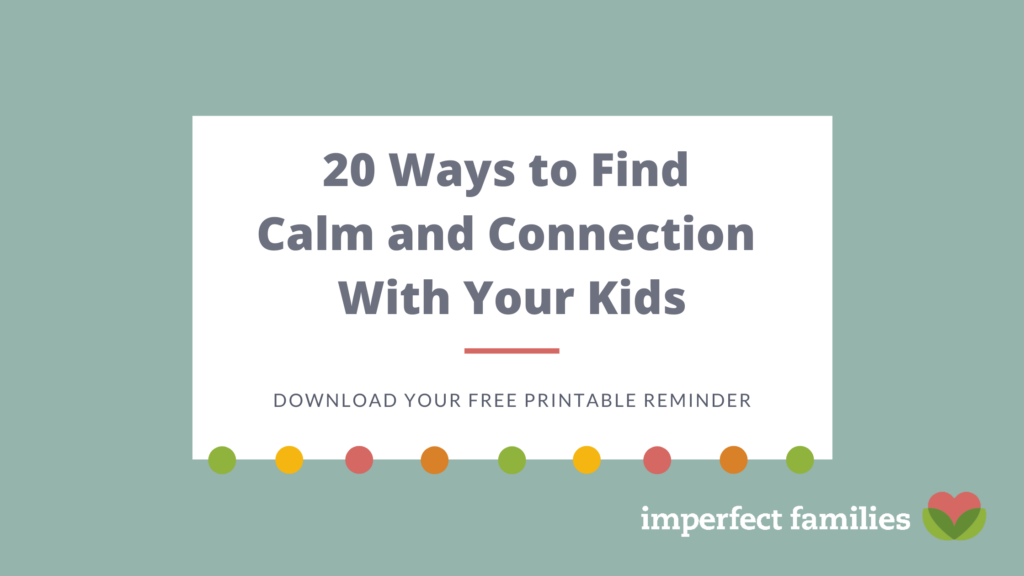It’s exhausting going back and forth with your kids about everything from getting in the car seat to eating their veggies. This tip will help you explore your options and decrease the power struggles with your 3-year-old (and kids of any age!)
Setting the plate in front of him, you cringe.
You know what’s going to happen. It happens every night.
You beg. He refuses. You plead. He pushes back.
Soon there’s yelling. Crying. Demanding. Bribing. Threatening.
(From both of you.)
The longer it lasts, the more heated the power struggle.
Why won’t he just do what you ask him to do?
Why does every night end in the “battle of the peas?”
Why you’re still having power struggles with your 3-year-old.
I know you’re tired of the battles. I know you hate fighting with your kids. I know you want to make a change, but nothing seems to work.
Maybe it’s because you’re focused on winning.
You want your kids to do things your way, to do what you say, when you say it, because…well, you’re the parent.
Unfortunately, forcing our kids to do what we want rarely works. Instead, it creates a hostile situation that usually leads to less cooperation – the opposite of what you were trying to achieve!
So, how do we end this cycle?
Stop trying to win.
What?! Give in? Give them what they want? Let them do whatever they please?
No. Not exactly.
Power struggles are only struggles because two people engage in a fight. If one person steps out of the ring, the struggle is over.
You want your son to eat all of his peas. He doesn’t want to. You try to force it. He pushes them away. You try again. He refuses even more.
Stop trying to win.
It’s a mindset change.
When we are engaged in a power struggle, our brains are in fight or flight mode. Our body is ready for attack.
We’re not thinking clearly and rationally. We’re not calmly exploring our options or working to find a compromise.
And, we’re definitely not focused on maintaining a strong relationship with our kids.
Nope.
We’re trying to win!
So, instead of focusing on winning the “battle of the peas.” Let’s focus on getting our brains back to calm so we can handle the situation differently.
What to do next.
- Calm Yourself: Before you can do anything else, you need to get your brain out of attack mode. Take a few deep breaths. Roll your shoulders. Stretch. Sit down. Do a yoga pose. Close your eyes. Find simple things to help you calm and focus.
- Connect: A misbehaving child is often feeling disconnected from you. Focusing on repairing connection or building connection in these moments can help your child’s brain move from attack-mode, to calm. Offer hugs, empathy, or get down to their level.
- Work together: Once you’re calm and you’ve connected, you can start to focus on creating other solutions to the problem. Again, it’s not about “winning,” it’s about solving a problem in a way that works for both you and your child.
When you decide not to win the power struggle, you have a lot more options:
- Talk it through
- Brainstorm solutions
- Offer choices
- Set limits with empathy
- Explore other points of view
- Make a plan
- Use a timer
- Create a schedule
- Have a snack
- Get a drink of water
- Move to a quiet spot
- Wrestle
- Cuddle
- Take a break
- Start over
- Apologize
- Be silly
- Explore your triggers
- Listen to your child’s perspective
So, you may decide not to fight the “battle of the peas” at this point.
It’s making mealtime stressful and most nights you end up yelling (which you hate). Instead, you focus on providing a lot of exposure to different veggies, let them help in the kitchen, and provide a variety of foods at each meal.
At some point, you hope your child eats peas, but when you look at the big picture, you’d rather have a peaceful mealtime than a nightly power struggle with your 3-year-old.
Related: Turn Your Picky Eater Into A Healthy Eater
Not quite sure?
This is more than just getting your kids to eat veggies. It’s anytime the two of you engage in a power struggle over anything.
When we stop trying to win, we can be objective about the situation.
I realize that this perspective may seem radically different to you. And that’s ok. Some of you may think this seems too “soft” or too passive. Some of you may feel that this doesn’t give kids enough accountability or doesn’t “teach them a lesson.”
Stepping out of a power struggle doesn’t make us less of a parent. It doesn’t mean we are giving in. (In fact, sometimes, your child will still have to do the things you ask, such as buckling into their car seat or wearing a bike helmet.) And, it doesn’t mean our kids don’t learn (the teaching comes later, not in the moment).
Instead, it provides a good role model for our kids. It shows them that taking time to calm our brain helps us make better decisions. It focuses on problem-solving and working together.
And, it demonstrates that we can disagree on a topic and still love each other.
Let’s talk!
If this is new to you, I’d love to sit down and talk it through with you. We’ll figure out why the power struggles are occurring and explore options to bring peace back to your relationship. Online parent coaching sessions are available worldwide. Check out my money back guarantee and schedule your session today!




Comments have been turned off to retain the privacy of all families. If you have a question or comment on the topic, you're always welcome to contact me.